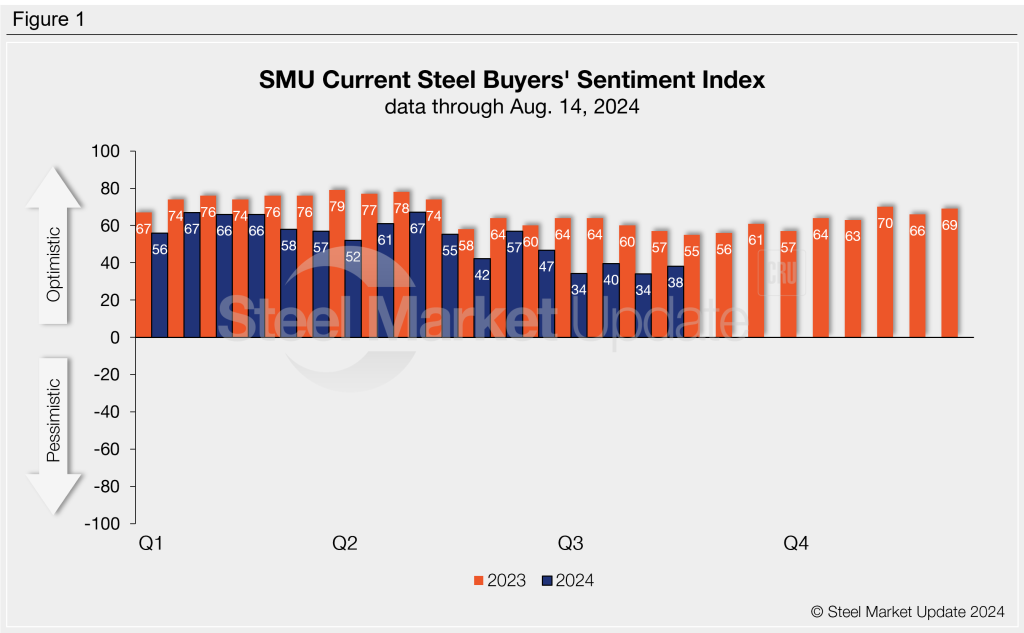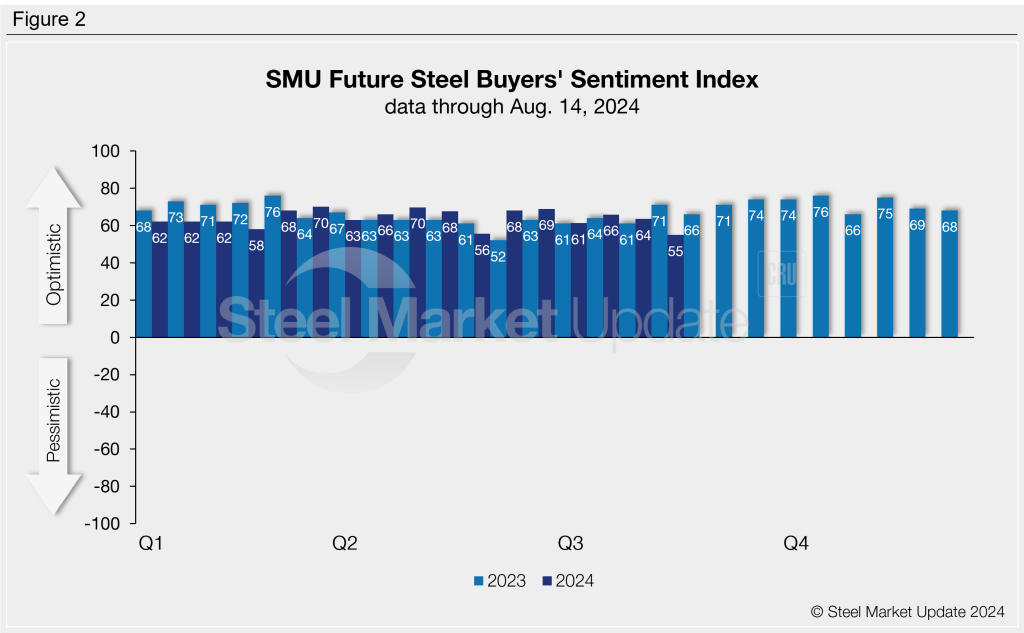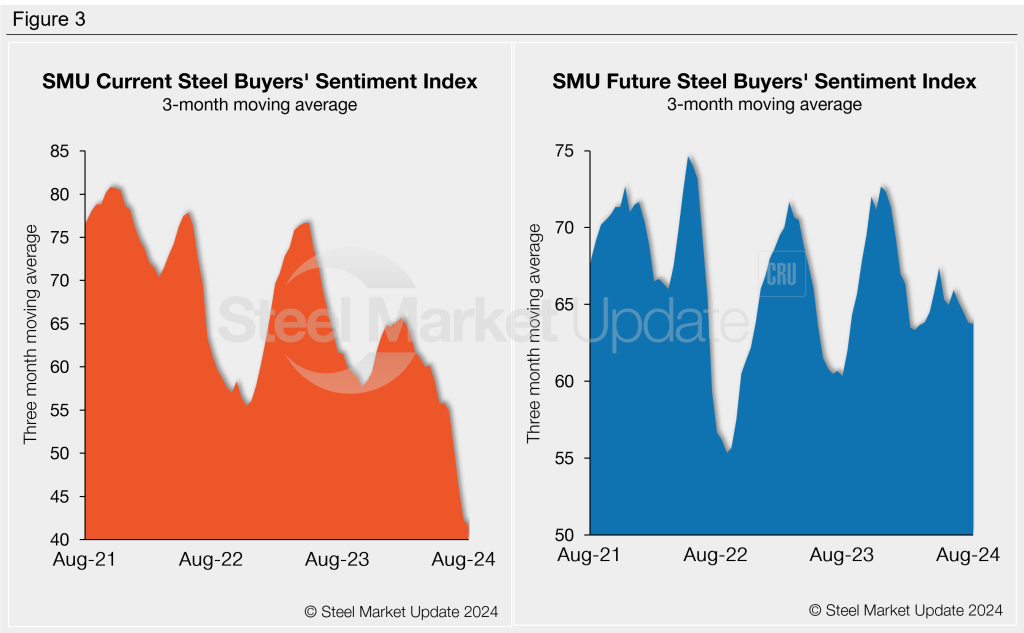Market Data

August 16, 2024
SMU survey: Steel buyers' optimism waning
Written by Brett Linton
SMU’s Steel Buyers’ Sentiment Indices moved in differing directions this week. Both indices have generally trended downward this year but continue to indicate optimism among steel buyers.
Current Buyers’ Sentiment has been bouncing around for the past few months. It rose four points this week after hitting a multi-year low in our previous survey. Future Buyers’ Sentiment slipped nine points from late July and is now at a 14-month low.
Every two weeks, we poll hundreds of steel buyers about their companies’ chances of success in today’s market, as well as business expectations three to six months from now. We use this information to calculate our Current Steel Buyers’ Sentiment Index and our Future Sentiment Index, which we have been tracking since 2008.
SMU’s Current Buyers’ Sentiment Index increased by four points to +38 this week (Figure 1). Recall that Current Sentiment had fallen to +34 in both the first and last weeks of July. Those were the lowest readings recorded since August 2020. Year to date, Current Sentiment has averaged +53. This is significantly lower than the +69 average seen in the same time frame of 2023. This time last year, Current Sentiment was 19 points higher at +57.

SMU’s Future Buyers’ Sentiment Index measures buyers’ feelings about business conditions three to six months down the road. This index fell to +55 this week, its lowest point in over a year (Figure 2). Future Sentiment has averaged +64 since the beginning of the year, down just one point from the same period of 2023. Future Sentiment this week is 16 points lower than the same week last year.

Measured as a three-month moving average, Buyers Sentiment eased further this week, a trend in place for most of the last year. The Current Sentiment 3MMA slipped to +41.60 this week, its lowest reading since August 2020. The Future Sentiment 3MMA declined slightly to a five-month low of +63.72 (Figure 3).

What SMU survey respondents had to say:
“Working through higher-priced inventory … and trying to push price – not much luck yet.”
“We seem to buy well and turn our inventory well.”
“Low raw material prices are below financial forecast.”
“I believe our market will begin to increase, and steel will increase and provide better margins.”
“Spot price increases should help future business.”
About the SMU Steel Buyers’ Sentiment Indices
The SMU Steel Buyers’ Sentiment Indices measure the attitude of buyers and sellers of flat-rolled steel products in North America. They are proprietary products developed by Steel Market Update for the North American steel industry. Tracking steel buyers’ sentiment can be helpful in predicting their future behavior. A link to our methodology is here. If you would like to participate in our survey, please contact us at info@steelmarketupdate.com.







